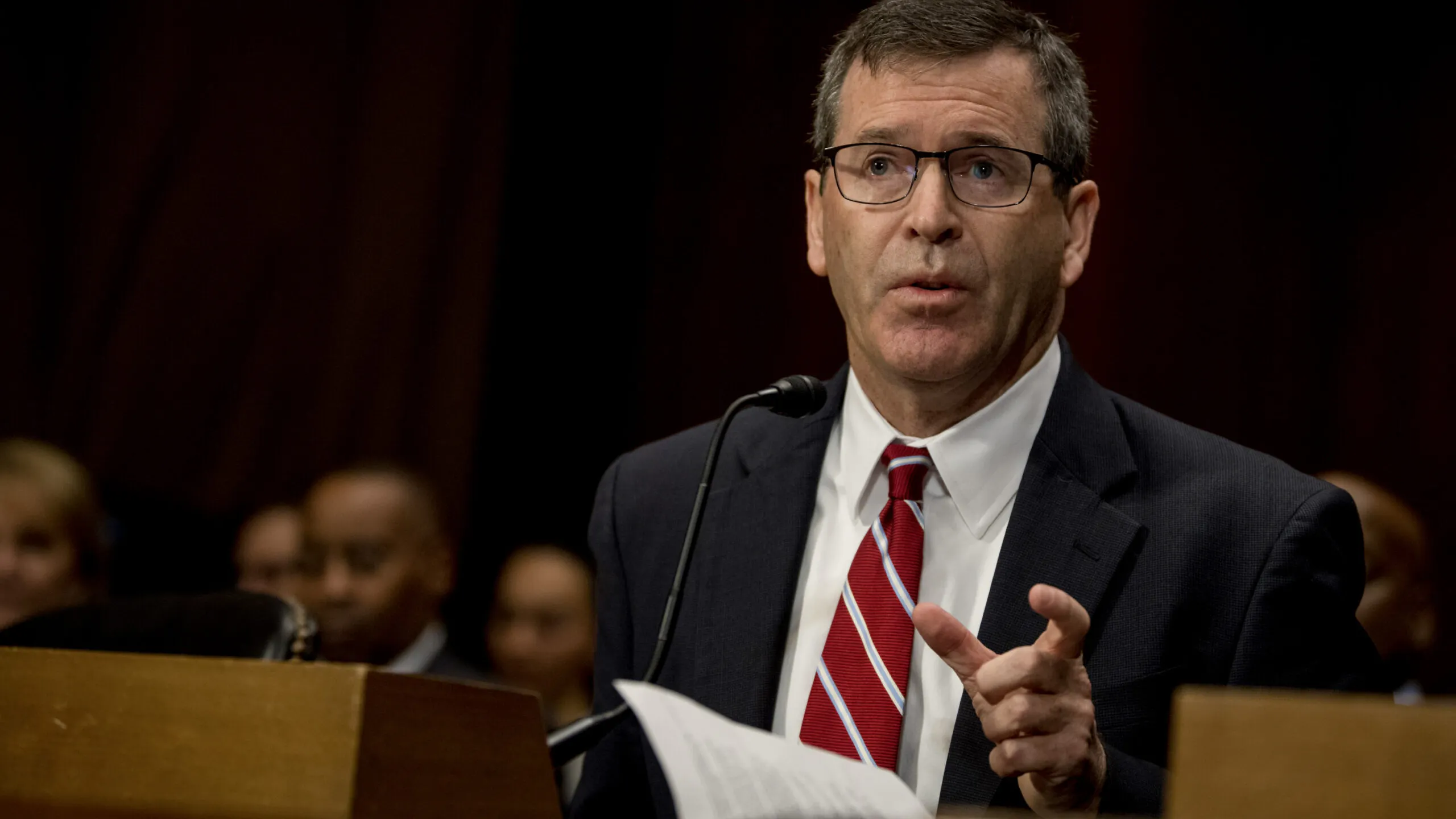Last week, senators grilled President Biden’s judicial nominee Michael Delaney about the aggressive tactics he used against a child sexual abuse survivor while representing St. Paul’s boarding school. Mr. Delaney asked a court to publicly reveal the identity of a child sexual abuse survivor that sued St. Paul’s under the pseudonym “Jane Doe.” Mr. Delaney’s tactics sadden me, but they don’t surprise me.
Stuart A. Raphael, now a Virginia Court of Appeals judge, did the same thing to me in my lawsuit against Fairfax County Public Schools (FCPS) when he represented the school.
In 2019, I sued FCPS and some of its employees for their failure to address the severe sexual abuse I suffered at age 12 in middle school. My lawsuit is ongoing. In short, I suffered violent rapes and gang rapes that were entirely preventable had school employees acted appropriately. The school’s response was so deficient that the U.S. Department of Education found multiple violations of my rights. Like the survivor from St. Paul’s, I filed my lawsuit as “Jane Doe” to protect my safety and privacy.
But FCPS’s lawyer, Mr. Raphael, tried to dismiss my case by arguing that pseudonyms are unconstitutional because pseudonyms permit lawsuits from “phantoms.”
Mr. Raphael’s argument could have had sweeping ramifications for child sexual abuse survivors. If he had won, sexual abuse survivors could almost never use pseudonyms. That would have harmed countless people — pseudonyms can provide the safety and privacy survivors need to seek justice. According to the organization Darkness to Light, only 38% of child sexual abuse victims disclose their abuse, often due to fears about privacy. I know this fact from experience.
Coming forward was among the most challenging decisions I have ever made because I feared for my safety. There were previous threats against my life. When I decided to file, I was a 19-year-old college student beginning adulthood. I feared what it would mean for my future to make the gory details of my sexual abuse, including sensitive information and identifying factors, accessible to anyone who Googled my name. Yet I knew I needed to hold FCPS accountable so no child would suffer the same abuse. Using a pseudonym made me feel safe enough to fight the institution.
Thankfully, I defeated Mr. Raphael’s “phantom” argument — the Fourth Circuit Court of Appeals ruled that pseudonyms are constitutional. Survivors now have precedent that protects their safety and privacy. But it was a pyrrhic victory. Mr. Raphael added to my trauma and delayed my case by almost two years — making a mockery of the Eastern District of Virginia’s motto, “Justice delayed is justice denied.”
In reality, Mr. Raphael’s pseudonym argument was a gimmick to silence me. His legal briefs said so. He wrote, if he were right that my case should be dismissed because I used a pseudonym, then I couldn’t refile my lawsuit because, in his view, the time limit under my statute of limitations had expired. Raphael, however, didn’t object to the pseudonyms granted to my perpetrators and the school employees. It was only about stopping me.
These tactics are why victims don’t come forward. They cause pain, trauma, and delay.
My case isn’t the first time Mr. Raphael tried to silence vulnerable children. In another case against FCPS, he argued that a student who reported her sexual assault wasn’t really sexually assaulted because, according to him, the girl was only uncomfortable with forceful penetration of her genitals because her assaulter had a girlfriend. In another FCPS case, he argued that handcuffing and caging disabled students did not cause legal injuries. Each time, Mr. Raphael’s arguments challenged vulnerable children.
Nonetheless, the Virginia General Assembly selected Mr. Raphael to be a Court of Appeals judge. His appointment happened virtually overnight behind closed doors without public questioning, such as the confirmation hearings for federal judges. Had there been a hearing, the public could have examined Mr. Raphael’s record and severe lack of judgment before the General Assembly voted. I was disturbed to learn he would be a judge after how he treated me, but there was no opportunity for me to share my experience.
I know Chessy Prout, the survivor from St. Paul’s, feels frustrated knowing that Michael Delaney could become a federal judge. I’m glad Chessy wrote to the Senate about Mr. Delaney’s tactics, forcing him to defend his record, which should sink his nomination. And I wish I had a chance to share my experience with the Virginia General Assembly before it appointed Mr. Raphael in haste.
Judges make decisions that affect real people. It’s a serious job, not a job for people like Delaney and Raphael that can’t see the broader impact of their actions. The Senate should reject Mr. Delaney’s nomination, and Mr. Raphael’s current term on the Virginia Court of Appeals should be his last.
B.R. is a survivor of sexual abuse in Fairfax County Public Schools. She has been fighting for over a decade to hold FCPS accountable, not just for herself, but for all other students and families harmed.
The views expressed in this piece are those of the author and do not necessarily represent those of The Daily Wire.

.png)
.png)

